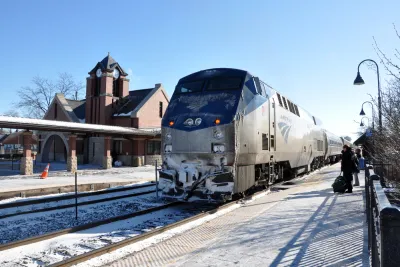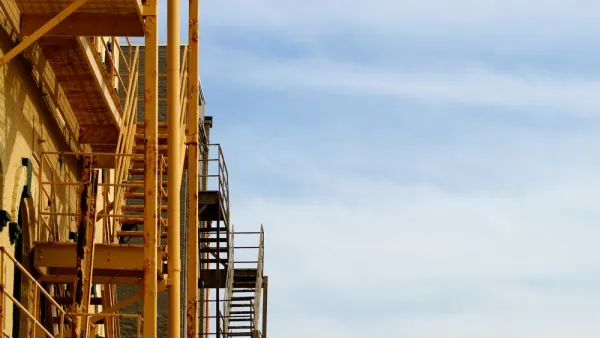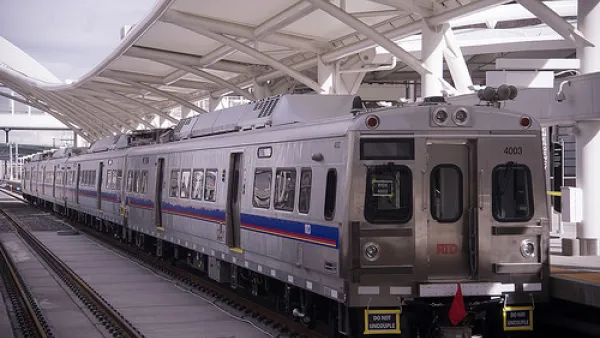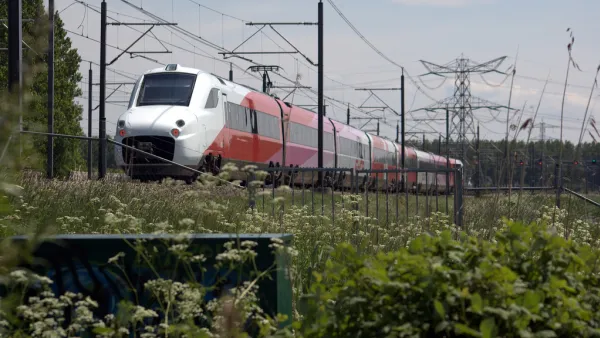Startups are increasingly abandoning the suburban office park to try their luck in denser urban cores. According to this study, good transit is one factor behind that trend. But it's not the only one.

"High-tech startups have become increasingly urban in the past decade or so, gravitating to dense neighborhoods in downtown San Francisco and Lower Manhattan, which have supplanted Silicon Valley as the nation's leading centers for such startups," Richard Florida writes. Among new businesses of all types, access to transit is playing a part in that shift.
Florida discusses a study that uses spatial econometric techniques to analyze the relationship between transit and startups in five cities: San Jose, Austin, Philadelphia, Cleveland, and Boston. "The study documents a close relationship between startups and transit, even though the average block in the study has residents with a fairly high level of car ownership," Florida writes. The study finds a greater association between commuter trains and new startups, at about double the rate of light and heavy rail.
At the same time, the study demonstrates that transit is only one way for burgeoning urban cores to attract new businesses. After all, both San Jose and Austin are renowned for their startup culture and neither has particularly well-developed transit infrastructure. Boston is an example of a city that boasts both.
FULL STORY: Startups Are Abandoning Suburbs for Cities With Good Transit

National Parks Layoffs Will Cause Communities to Lose Billions
Thousands of essential park workers were laid off this week, just before the busy spring break season.

Retro-silient?: America’s First “Eco-burb,” The Woodlands Turns 50
A master-planned community north of Houston offers lessons on green infrastructure and resilient design, but falls short of its founder’s lofty affordability and walkability goals.

Delivering for America Plan Will Downgrade Mail Service in at Least 49.5 Percent of Zip Codes
Republican and Democrat lawmakers criticize the plan for its disproportionate negative impact on rural communities.

Test News Post 1
This is a summary

Test News Headline 46
Test for the image on the front page.

Balancing Bombs and Butterflies: How the National Guard Protects a Rare Species
The National Guard at Fort Indiantown Gap uses GIS technology and land management strategies to balance military training with conservation efforts, ensuring the survival of the rare eastern regal fritillary butterfly.
Urban Design for Planners 1: Software Tools
This six-course series explores essential urban design concepts using open source software and equips planners with the tools they need to participate fully in the urban design process.
Planning for Universal Design
Learn the tools for implementing Universal Design in planning regulations.
EMC Planning Group, Inc.
Planetizen
Planetizen
Mpact (formerly Rail~Volution)
Great Falls Development Authority, Inc.
HUDs Office of Policy Development and Research
NYU Wagner Graduate School of Public Service





























